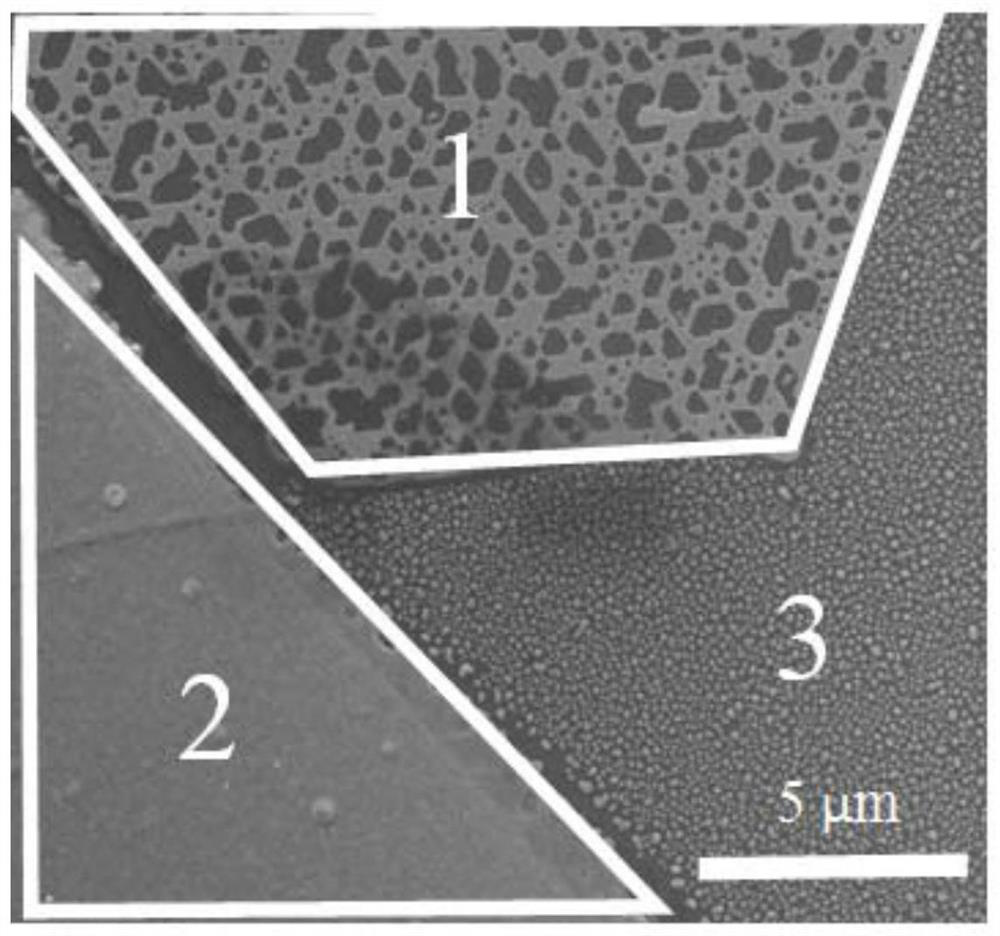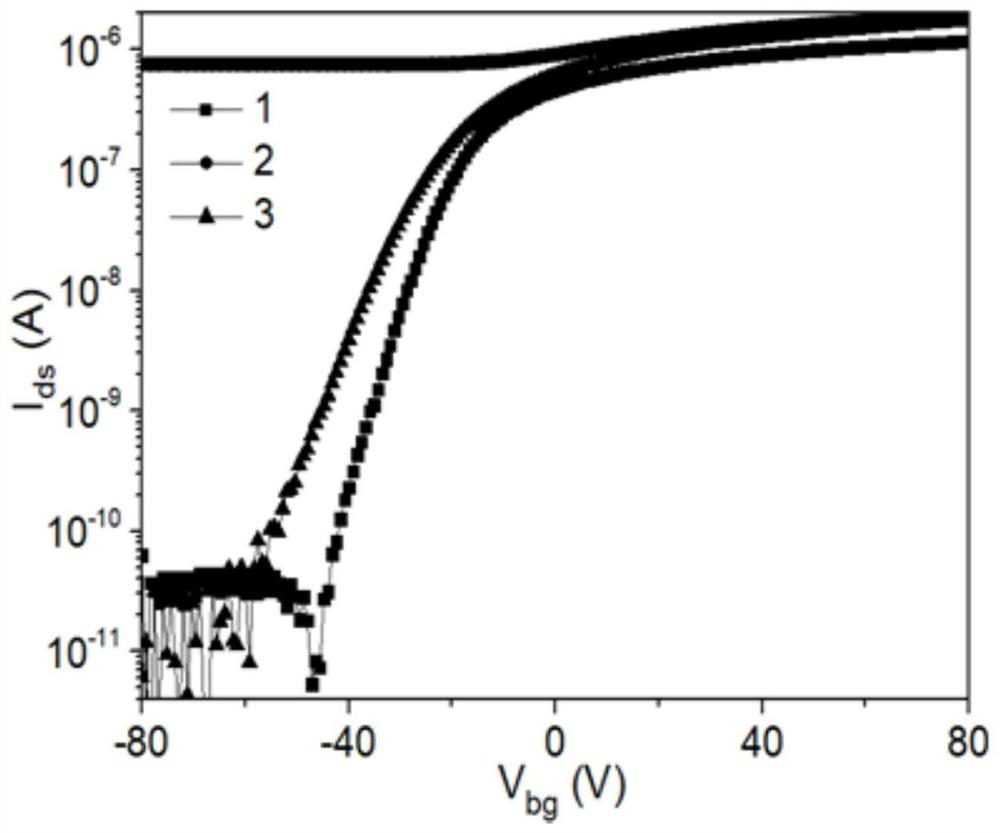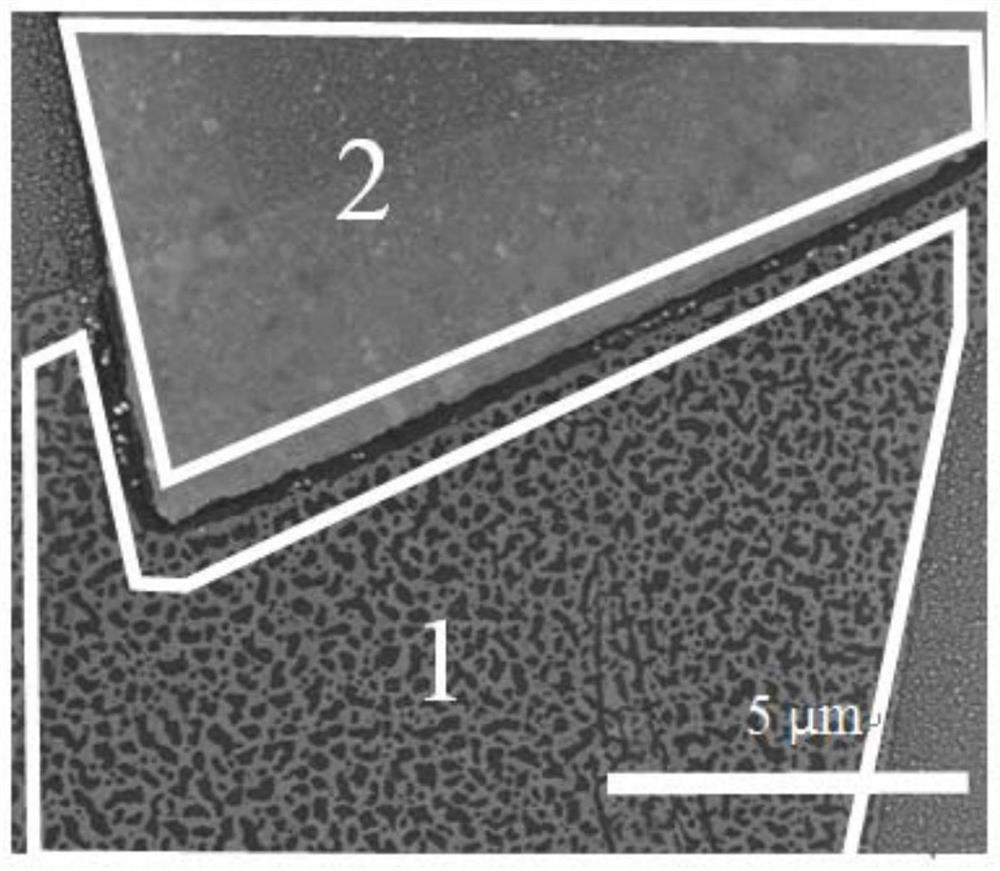A method for optically degenerate doping of transition metal chalcogenides and its application
A transition metal and sulfide technology, applied in sustainable manufacturing/processing, climate sustainability, semiconductor devices, etc., can solve the problems of destroying the lattice structure, unstable process repeatability, etc.
- Summary
- Abstract
- Description
- Claims
- Application Information
AI Technical Summary
Problems solved by technology
Method used
Image
Examples
Embodiment 1
[0036] (1) Transfer 15 nm thick MoS on heavily doped silicon or silicon dioxide substrate by dry transfer method 2 flakes;
[0037] (2) Use MODELWA-650MZ-23NPP homogenizer with semiconductor material MoS 2 Spin-coat PMMA950 on the substrate as an electron beam photoresist, use an FEI Inspect F50 scanning electron microscope to perform electron beam lithography to expose both ends of the material, and use a Techno metal evaporation instrument to deposit titanium / gold on both sides of the exposed material (10nm / 35nm) as the test electrode of the material;
[0038] (3) Place the above-mentioned device in the Tekno Metal Evaporation Instrument again, and deposit a 6nm gold layer on the surface of the device by electron beam evaporation. At this time, a part of the nano-gold is deposited on the MoS 2 On the thin sheet, a part of the nano-gold is directly deposited on the silicon or silicon dioxide substrate;
[0039] (4) Then place the obtained electrical device in a quartz tube...
Embodiment 2
[0044] Using the same method as in Example 1, transfer ReS on heavily doped silicon or silicon dioxide substrates 2 thin slices, and deposited titanium / gold as contact electrodes on both sides of the material by electron beam lithography, and carried out the deposition of nano-gold layer and high-temperature annealing process. The scanning electron microscope image of the prepared sample is shown in image 3 shown. Among them: 1 is ReS 2 Gold on the sheet and surface; 2 is the electrode after annealing;
[0045] Electrical tests were performed on the sample, such as Figure 4 As shown in the middle curve 1, the ground state transfer characteristic curve of the device shows strong n-type characteristics, and after the device is subjected to ultraviolet light, its current transfer characteristic curve shows N-type doping characteristics.
[0046] After using a hand-held UV lamp to irradiate the device with ultraviolet light, the transfer characteristic curve is as follows F...
Embodiment 3
[0048] Using the same method as in Example 1, transfer MoSe on heavily doped silicon or silicon dioxide substrates 2 Thin slices, MoSe2 thin slices, followed by electron beam lithography to deposit titanium / gold on both sides of the material as contact electrodes, and perform nano-gold layer deposition and high-temperature annealing process. The prepared samples are shown in Figure 5 shown.
[0049] Electrical tests were performed on the sample, such as Image 6 As shown in the middle curve 1, the ground state transfer characteristic curve of the device shows strong N-type characteristics, and after the device is exposed to ultraviolet light, its current transfer characteristic curve shows N-type doping characteristics.
[0050] After using a hand-held UV lamp to irradiate the device with ultraviolet light, the transfer characteristic curve is as follows Image 6 Shown in curve 2. Its current transfer characteristic curve shows N-type doping characteristics, which is speci...
PUM
| Property | Measurement | Unit |
|---|---|---|
| thickness | aaaaa | aaaaa |
| thickness | aaaaa | aaaaa |
Abstract
Description
Claims
Application Information
 Login to View More
Login to View More - R&D
- Intellectual Property
- Life Sciences
- Materials
- Tech Scout
- Unparalleled Data Quality
- Higher Quality Content
- 60% Fewer Hallucinations
Browse by: Latest US Patents, China's latest patents, Technical Efficacy Thesaurus, Application Domain, Technology Topic, Popular Technical Reports.
© 2025 PatSnap. All rights reserved.Legal|Privacy policy|Modern Slavery Act Transparency Statement|Sitemap|About US| Contact US: help@patsnap.com



